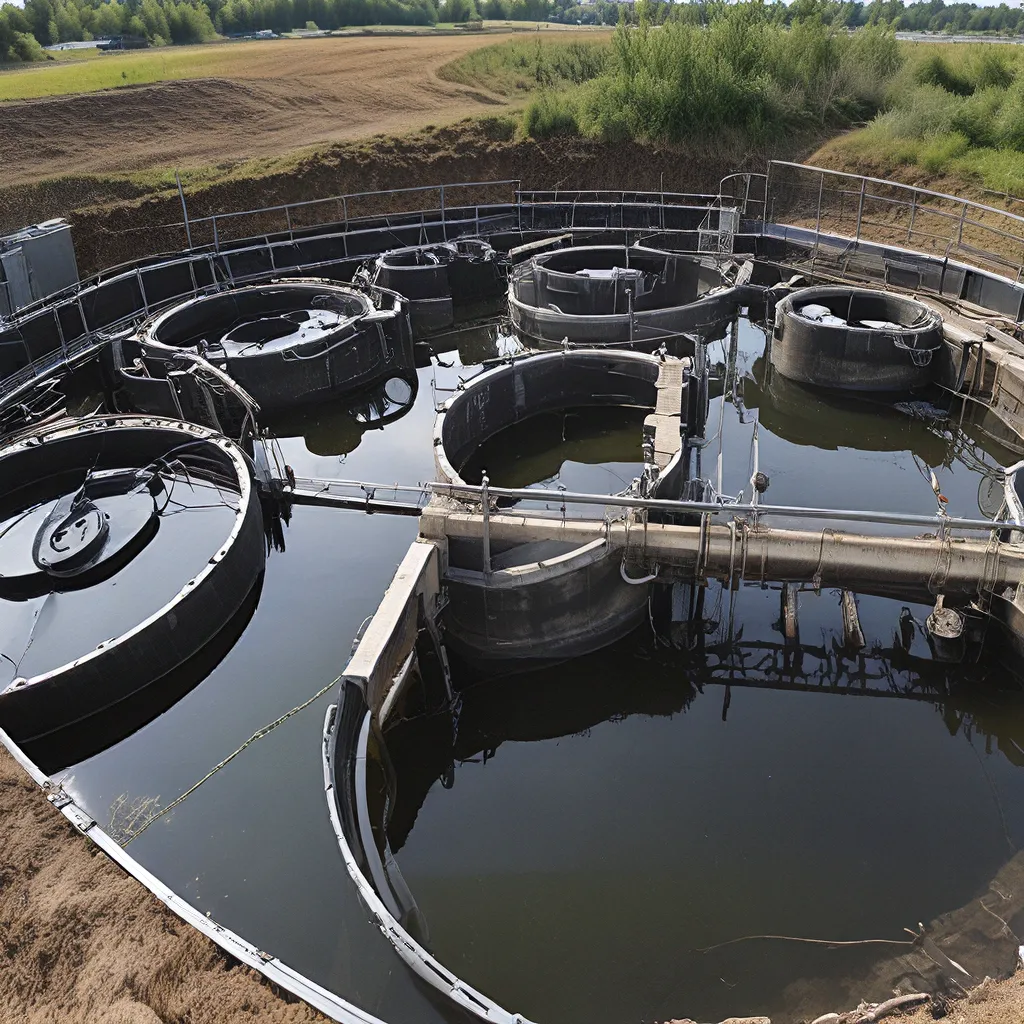
As we navigate the complexities of our modern world, one issue that has gained significant attention is the need for sustainable wastewater management. Gone are the days when we could simply flush and forget; the realities of water scarcity, environmental degradation, and the ever-growing demand for resources have thrust this topic into the spotlight.
But, my friends, this is no gloomy tale of doom and gloom. In fact, I’m here to share with you an exciting journey of innovation, creativity, and the promise of a more sustainable future. Prepare to dive deep (pun intended) into the world of wastewater treatment and nutrient recovery – where we’re not just cleaning up our act, but transforming the very way we think about our most precious resource: water.
The Shifting Paradigm: From Waste to Resource
You know, it’s funny how our perspectives can change over time. Not long ago, wastewater was simply seen as a problem to be dealt with, a nuisance that needed to be flushed away and forgotten. But as we’ve come to understand the true value of water and the critical role it plays in our ecosystems, that mindset has started to shift.
Studies have shown that wastewater is actually a veritable goldmine, brimming with nutrients, minerals, and even energy-rich compounds that can be recovered and repurposed. It’s a revelation that has spurred researchers, engineers, and visionaries alike to rethink the way we approach wastewater management.
Nutrient Recovery: Closing the Loop
One of the most exciting developments in this field is the concept of nutrient recovery. You see, our wastewater isn’t just a stream of dirty water – it’s a rich tapestry of essential elements like nitrogen, phosphorus, and potassium. These nutrients are the lifeblood of our agricultural systems, and by extracting them from wastewater, we can create a closed-loop system that reduces our reliance on finite, energy-intensive fertilizer production.
Researchers have been experimenting with various techniques, from advanced biological processes to innovative chemical treatments, to recover these valuable nutrients. And the results have been nothing short of remarkable. Not only are we able to reduce the environmental impact of wastewater discharge, but we’re also creating a sustainable source of fertilizers that can help feed the world.
Imagine a future where our farms and gardens are nourished by the very waste we once discarded. It’s a poetic and practical solution that’s gaining traction around the globe, and it’s all thanks to the dedicated efforts of scientists, engineers, and forward-thinking organizations like Alpha Wastewater.
Energy Recovery: Powering the Future
But the benefits of wastewater treatment don’t stop at nutrient recovery. Emerging technologies have also made it possible to extract energy from wastewater – and I’m not just talking about the kind of energy that powers our lights and appliances. I’m talking about the kind of energy that could one day power our entire communities.
You see, wastewater is teeming with organic matter and other energy-rich compounds that can be harnessed to generate electricity, heat, and even fuel. Through processes like anaerobic digestion and biogas production, we can transform what was once considered waste into a valuable source of renewable energy.
Just imagine a future where our wastewater treatment plants are not only cleaning our water, but also powering our homes and businesses. It’s a vision that’s not as far-fetched as you might think, and it’s one that’s being pursued by innovative researchers and companies around the world.
The Circular Economy: Rethinking Waste
But the story of wastewater treatment and nutrient recovery isn’t just about technological breakthroughs. It’s also about a fundamental shift in the way we think about waste and resource management. We’re moving away from the linear, take-make-waste model that has dominated our economies for so long, and embracing the principles of the circular economy.
In a circular economy, the concept of “waste” is virtually eliminated. Instead, we view every byproduct and discarded material as a potential resource, to be reused, recycled, or repurposed in a continuous loop. And when it comes to wastewater, this philosophy is particularly relevant.
By recovering the nutrients and energy from our wastewater, we’re not just cleaning up our environments – we’re also creating new revenue streams, reducing our reliance on finite resources, and contributing to a more sustainable future. It’s a win-win-win scenario that’s captured the imagination of policymakers, industry leaders, and concerned citizens alike.
The Path Forward: Challenges and Opportunities
Of course, transitioning to a more sustainable wastewater management system is not without its challenges. There are technical hurdles to overcome, regulatory barriers to navigate, and public perceptions to shift. But as I’ve mentioned, the potential rewards are simply too great to ignore.
Government agencies and research institutions are pouring resources into developing and refining these technologies, and companies like Alpha Wastewater are at the forefront of this movement, providing innovative solutions and showcasing the real-world benefits of nutrient and energy recovery.
And perhaps most importantly, the public is becoming increasingly aware of the importance of sustainable water management. Surveys have shown that people are willing to support and even pay for technologies that reduce waste and promote environmental stewardship. It’s a testament to the power of education and the growing desire for a more sustainable future.
So, my friends, as we look ahead, I can’t help but feel a sense of excitement and cautious optimism. The road ahead may not be easy, but the potential rewards are truly transformative. By embracing the revolutionary potential of wastewater treatment and nutrient recovery, we can not only clean up our environments, but also build a more resilient, circular economy that benefits us all.
Who knows, maybe one day, the very water we flush away will be the key to feeding our crops, powering our homes, and securing a sustainable future for generations to come. It’s a bold and beautiful vision, and one that I’m eager to see unfold.